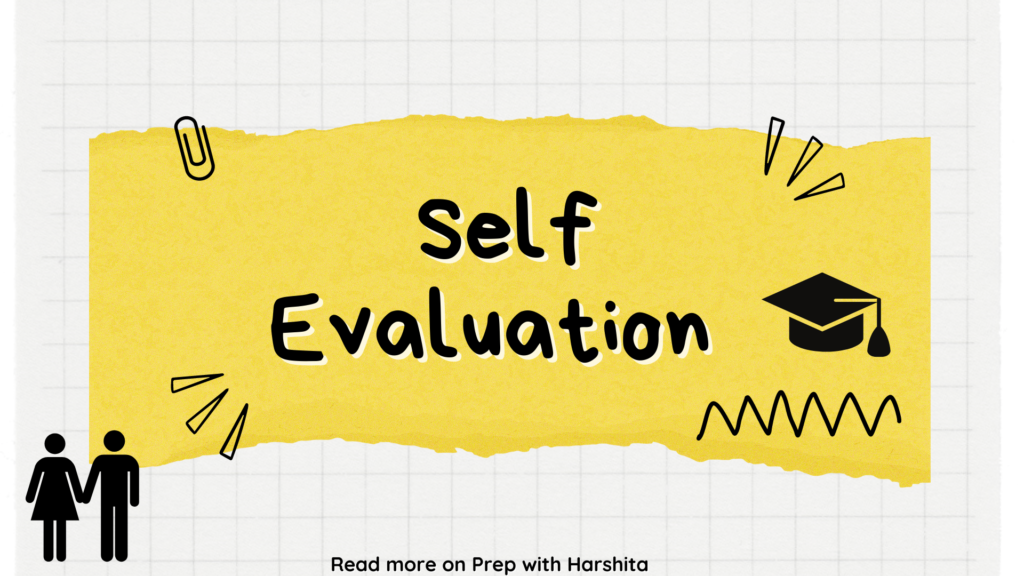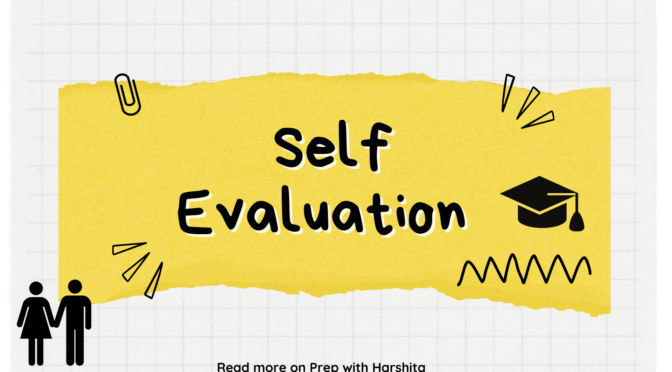Self-evaluation in education refers to the process in which students assess their own learning, progress, and performance. It involves students reflecting on their strengths, weaknesses, and areas for improvement, and taking responsibility for their own learning. Self-evaluation plays a crucial role in promoting metacognition, self-awareness, and self-regulated learning.
Here is a detailed explanation of self-evaluation in education:
- Purpose of Self-Evaluation: Self-evaluation serves several purposes in education:
a) Reflection: It encourages students to reflect on their learning experiences, identify what they have learned, and make connections between new and prior knowledge.
b) Self-awareness: It promotes self-awareness by helping students recognize their strengths, weaknesses, learning preferences, and areas for improvement.
c) Goal Setting: It allows students to set personal learning goals and monitor their progress toward those goals.
d) Ownership of Learning: It empowers students to take ownership of their learning process, making them more active and engaged learners.
- Process of Self-Evaluation: The process typically involves the following steps:
a) Reflection: Students engage in reflective thinking to assess their learning experiences, thinking critically about their achievements, challenges, and areas of growth.
b) Identification of Strengths and Weaknesses: Students identify their strengths, acknowledge what they have done well, and recognize areas where they need improvement.
c) Goal Setting: Based on their self-assessment, students set realistic and specific learning goals to focus on areas that require further development.
d) Monitoring Progress: Students track their progress towards their goals, using various strategies such as checklists, progress charts, or learning journals.
e) Adjusting Strategies: If necessary, students modify their learning strategies, seek additional support, or explore alternative approaches to improve their learning.
- Assessment Methods for Self-Evaluation: There are various assessment methods that students can use for this:
a) Self-Reflection: Students can engage in self-reflection through written reflections, journaling, or thought-provoking questions that prompt them to think deeply about their learning experiences.
b) Self-Assessment Tools: Students can use self-assessment tools such as checklists, rubrics, or rating scales to evaluate their own performance against specific criteria or learning standards.
c) Portfolios: Students can maintain portfolios of their work, showcasing their progress and achievements over time. Portfolios provide an opportunity for students to self-evaluate their work and reflect on their growth.
d) Learning Logs or Diaries: Students can keep learning logs or diaries to record their thoughts, observations, and reflections on their learning process.
- Benefits of Self-Evaluation: Self-evaluation offers several benefits to students:
a) Metacognitive Skills: It develops students’ metacognitive skills, enabling them to reflect on their thinking processes, monitor their own learning, and make adjustments as needed.
b) Self-Directed Learning: It fosters self-regulated and self-directed learning, as students take responsibility for their learning and make informed decisions about their learning strategies.
c) Motivation and Engagement: By engaging in it, students become more motivated and engaged in their learning as they develop a sense of ownership and control over their educational journey.
d) Goal Orientation: It helps students set meaningful learning goals and provides them with a sense of direction and purpose in their studies.
e) Continuous Improvement: It supports a growth mindset, encouraging students to embrace challenges and persist in their efforts to continuously improve their learning and performance.
In conclusion, self-evaluation in education empowers students to take an active role in their learning process. By reflecting on their progress, identifying strengths and weaknesses, and setting goals, students develop metacognitive skills, become self-aware learners, and take ownership of their educational journey.
Self-evaluation enhances motivation, engagement, and continuous improvement, leading to more meaningful and effective learning outcomes.
Also Read: What is Portfolio?

Also Visit: Prep with Harshita


Can you be more specific about the content of your article? After reading it, I still have some doubts. Hope you can help me.
I don’t think the title of your article matches the content lol. Just kidding, mainly because I had some doubts after reading the article.